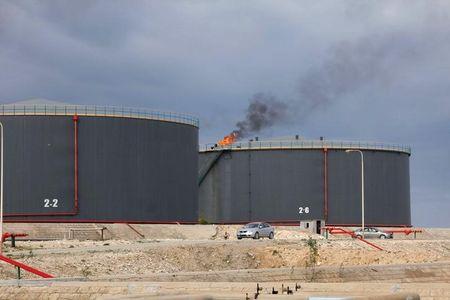Advertisement
Western allies warn on control of Libya's national resources
ROME (Reuters) - The United States and five European countries warned on Tuesday that Libyan state institutions which control billions of euros of national assets risked being exploited by rival forces wrestling for control of the country.
Libya's central bank, the Libyan Investment Authority, the National Oil Corporation (NOC) and the Libyan Post Telecommunications and Information Technology Co. together control a huge portfolio of assets ranging from stakes in some of Europe's biggest companies to vital oil revenues.
Control of state bodies has become increasingly murky as Libya has descended into near-anarchy since rebels toppled Muammar Gaddafi in 2011, with two rival governments backed by armed militias now claiming legitimate authority.
In a joint statement underlining mounting international alarm, France, Germany, Spain, Italy and Britain joined the U.S. administration in urging that Libya's economic, financial and energy resources be used "for the benefit of all Libyan people".
They said that as hopes of a peace deal brokered by the United Nations were rising, "we express our concern at attempts to divert Libyan resources to the narrow benefit of any side in the conflict and to disrupt financial and economic institutions that belong to all Libyans."
They also warned that militant Islamist groups were exploiting the disorder in the sprawling North African state "and will take advantage of Libya's national wealth to advance their appalling transnational agenda".
The government of internationally recognized Prime Minister Abdullah al-Thinni disputes power with a rival government based in Tripoli, home of the NOC, since the latter's supporters seized the capital last year, and oil revenues have been the subject of particular contention.
Al-Thinni's government said earlier this year that it wanted oil buyers to pay through a firm also called NOC but based in the eastern city of Benghazi. Rival Prime Minister Omar al-Hassi has said the dispute could break Libya in two.
The statement from the foreign governments said Libya needed a government capable of overseeing its resources and protecting the independence of its core economic institutions.
(Reporting by James Mackenzie; Editing by Mark Heinrich)



















Add new comment